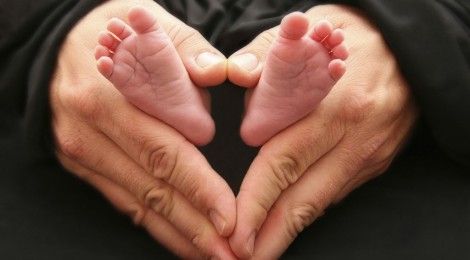Pregnancy
Crisis Pregnancy Centers Traumatize Women Through Deception
Crisis pregnancy centers attempt to confuse visitors and induce guilt.
Posted February 18, 2016

In 2002, U.S. President George W. Bush enacted a policy allowing faith-based organizations to receive government grants to provide social services. America’s Crisis Pregnancy Centers (CPCs) were a major beneficiary, receiving an estimated $60 million in federal grants for abstinence promotion between 2001 and 2006.
More recently, access to abortion clinics has become a great concern in the United States, with 70 laws cutting abortion funding passed in 2013. It is estimated that as of 2014, CPCs outnumber abortion clinics five to one.
Founded on Christian ideology, CPCs are at the forefront of the pro-life movement and are gaining popularity among American conservatives. Often presenting themselves as abortion clinics, they claim to offer free pregnancy tests, sonograms and abortions to attract women facing unwanted pregnancies.
But these centres are not medical clinics and do not offer abortions. Women who walk into CPCs seeking guidance are often bombarded with images of aborted fetuses and religious propaganda to dissuade them from aborting unwanted pregnancies. Often located near actual abortion clinics, CPCs attempt to confuse visitors, induce guilt, and pathologize abortion through misinformation.
Misconception is a short documentary from Vice News that exposes unethical practices occurring in crisis centers. The film features hidden camera footage of lies told to women designed to scare them out of terminating their pregnancies.
The documentary shines light on the psychological distress women experience in these centers. CPC counsellors are seen telling women that abortion causes long-term psychological damage, infertility and can lead to complications for future pregnancies.
“If people die due to an abortion, later on they’re finding parts of the fetus in the lungs or the heart,” one counsellor told a client.
Donna, featured in the documentary, recounted a disturbing experience at a CPC in Texas. Thinking that the White Rose was an abortion clinic, she went in to receive a free sonogram and counselling. When she told her story to Vice, Donna was emotionally distraught: “It didn’t occur to me that there was a catch. It’s an awful feeling, being in that place, and I can’t explain why. You go in asking for help, but they’re not giving you the kind of help that you’re asking for. I feel like I was lied to. I feel like I was tricked.”
While some lie outright, other CPCs use controversial studies to dissuade women from aborting. Care Net, one of the largest American CPC networks, distributes a national brochure that purports a significant correlation between abortion and breast cancer, citing a single study that has since been called into question. Multiple other sources have demonstrated that abortion does not affect a woman’s risk of developing breast cancer.
Allison Yarrow’s August 2014 report, The Abortion War’s Special Ops, documents the emotional trauma that women experience from this ongoing deception. The report speaks of counsellors repeatedly warning clients that abortion can lead to ‘post-abortion syndrome’, a supposed condition that includes a combination of suicidal thoughts and depression. Unsurprisingly, an American Psychological Association report found no significant increase in negative emotions or psychiatric illness as a result of having an abortion.
At a pro-life conference in 2012, Abby Johnson, a supporter of CPCs, explained their main strategy. “We want to appear neutral from the outside. The best call, the best client you ever get, is one who thinks they’re walking into an abortion clinic. The one that thinks you provide abortions.”
In an effort to reveal the deceptive tactics of CPCs, some women are fighting back. Pro-choice activist Katie Stack campaigns against anti-abortion legislation after her own disturbing experience at a local crisis center.
In 2011, she started The Crisis Project which exposes the “medical misinformation, emotional manipulation, and religious doctrine” within these clinics across the United States. As an undercover reporter, Stack frequents CPCs in an effort to reveal the harmful inaccuracies they spread.
The fight to end CPC deception comes with its challenges. Earlier this year, Missouri Bill HB 1848, which would have required clinics to notify patrons that they do not perform abortions or give referrals for abortion services, failed to pass. Many states have faced similar roadblocks in establishing pro-choice legislation.
While anti-CPC activists have a long way to go to acquire legislative change in the United States, they are making some headway on an international scale. Global organizations like Google have agreed to remove CPCs’ deceptive advertisements from search results.
On September 18, 2014, Yarrow told the Huffington Post: “We are all entitled to our own positions on abortion, but I bet many people disagree with taxpayer-funded deception.”
- Lauren Goldberg, Contributing Writer, The Trauma and Mental Health Report
- Chief Editor: Robert T. Muller, The Trauma and Mental Health Report
Copyright Robert T. Muller




